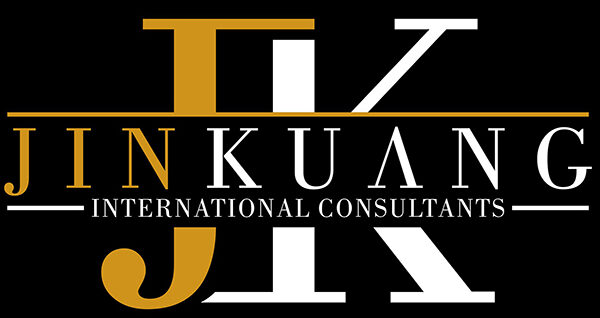
Harmony in Action: Unveiling the Power of Collaboration as a Core Value in Business
In the dynamic symphony of business operations, collaboration takes center stage as a core value that not only defines the essence of an organization but also orchestrates its journey through the intricate melodies of success. This exploration delves into the profound significance of collaboration as a foundational business value, shedding light on why it is indispensable, how it cultivates a robust company culture, its impact on client relationships, and ultimately, how it becomes the catalyst for sustained business triumph.
Defining Collaboration in Business:

Collaboration extends beyond the mere act of working together; it embodies a synergistic approach where individuals pool their diverse skills, perspectives, and strengths to achieve shared goals. A collaborative culture encourages open communication, mutual respect, and a collective mindset, fostering an environment where the whole is truly greater than the sum of its parts.
Why Collaboration Matters:
1. Innovation and Creativity:
Collaboration is a crucible for innovation and creativity. When individuals with varied expertise come together, it creates a fertile ground for the generation of novel ideas, solutions, and approaches.
2. Problem-Solving Prowess:
Collaborative teams excel in problem-solving. The diversity of thought and expertise within a collaborative environment enables teams to navigate challenges more effectively and devise comprehensive solutions.
3. Employee Engagement:
Collaboration enhances employee engagement. In an environment where individuals feel their contributions are valued and where they have the opportunity to collaborate with colleagues, there is a natural boost in employee morale and commitment.
Shaping Company Culture:
The influence of collaboration on company culture is transformative, fostering an environment that values teamwork, inclusivity, and mutual support:
1. Team Empowerment:
Collaboration empowers teams. When individuals are encouraged to collaborate, it promotes a sense of ownership and empowerment, fostering a culture where everyone feels their contributions are integral to the team’s success.
2. Shared Goals:
A collaborative culture aligns individuals with shared goals. Instead of working in silos, employees understand how their roles contribute to the overall objectives of the organization, promoting a sense of collective purpose.
3. Effective Communication:
Collaboration enhances communication. Teams that collaborate regularly develop strong communication skills, ensuring that information flows seamlessly, and ideas are shared openly, leading to more effective decision-making.
Importance to Client Relationships:
1. Client-Centric Solutions:
Collaboration leads to client-centric solutions. When teams collaborate to understand and address client needs, it results in the delivery of tailored solutions that resonate with the client’s goals and expectations.
2. Efficient Project Delivery:
Collaborative teams are more efficient in project delivery. The seamless coordination among team members ensures that projects are completed with greater efficiency, meeting deadlines and exceeding client expectations.
3. Responsive Adaptability:
Collaboration cultivates adaptive responsiveness. In a collaborative environment, teams can quickly adapt to changing client requirements, ensuring a nimble response to evolving needs and market dynamics.
Impact on Business Success:
1. Enhanced Productivity:
Collaboration is linked to enhanced productivity. Teams that collaborate effectively can accomplish tasks more efficiently, leading to increased productivity and a higher output of quality work.
2. Market Agility:
Collaborative organizations are more agile in the market. The ability to quickly respond to market changes, trends, and customer preferences positions businesses for success in an ever-evolving business landscape.
3. Employee Retention:
A collaborative culture contributes to employee retention. Employees who feel valued, supported, and part of a collaborative team are more likely to stay with the organization, reducing turnover costs and maintaining institutional knowledge.
4. Innovative Edge:
Collaboration provides an innovative edge. Organizations that foster collaboration consistently stay ahead of the curve, leveraging the collective intelligence of their teams to innovate and remain competitive.
In the grand tapestry of business values, collaboration emerges not just as a buzzword but as a dynamic force that propels organizations toward success. It is the glue that binds diverse talents, the engine that drives innovation, and the secret ingredient that transforms businesses into harmonious and thriving entities. As the business landscape continues to evolve, those anchored in collaboration not only adapt but also lead the way towards a future where synergy reigns supreme.
Teamwork really makes the dreamwork! This is one of Jin-Kuang’s core values driving us to work hard both internally and externally to achieve the dreams of our organization as well as those of our clients’.
References
1. Katzenbach, J. R., & Smith, D. K. (1993). “The Wisdom of Teams: Creating the High-Performance Organization.” Harvard Business Review Press.
2. West, M. A. (2012). “Effective Teamwork: Practical Lessons from Organizational Research.” John Wiley & Sons.
3. Wageman, R., Hackman, J. R., & Lehman, E. (2005). “Team Diagnostic Survey: Development of an Instrument.” Journal of Applied Behavioral Science, 41(4), 373–398. (https://doi.org/10.1177/0021886305289767)
4. Edmondson, A. C., & Lei, Z. (2014). “Psychological Safety: The History, Renaissance, and Future of an Interpersonal Construct.” Annual Review of Organizational Psychology and Organizational Behavior, 1, 23–43. (https://doi.org/10.1146/annurev-orgpsych-031413-091305)

